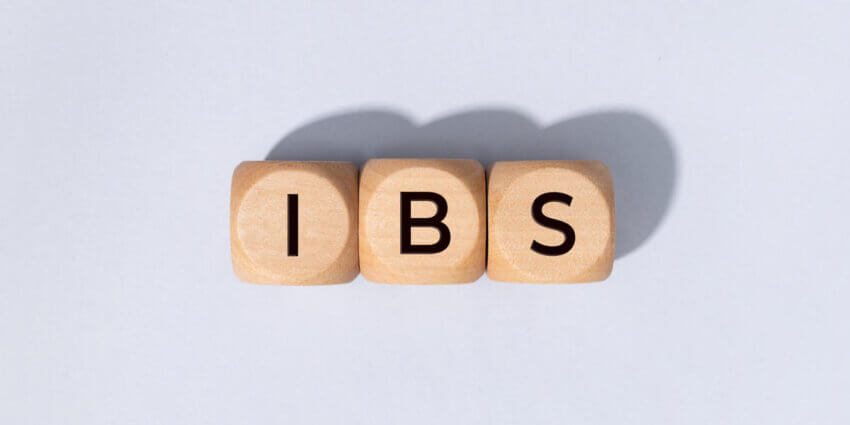People with chronic gut issues often seek the advice of their family doctor. They can then be referred to a gastroenterologist (also known as a GI Doctor). We have high hopes they’re going to do something about our problem; after all they can’t say we’re making this up as the symptoms are obvious (diarrhea and/or constipation). Constipation can even show up on an x-ray. But we’re often disappointed and after many expensive tests we are sent home with a diagnosis of IBS.
So what is IBS? I hate to be the bearer of bad news, but IBS simply means they don’t know what is causing your symptoms. Officially IBS stands for “Irritable Bowel Syndrome”, I think it actually stands for “Idiopathic Bull Stuff” (stuff can be replaced with a certain four letter word). Idiopathic means “arising from an obscure or unknown cause”, in other words, we don’t know. Thus often this diagnosis is simply laziness on the part of the doctor.
Of course if they don’t know what is causing the IBS they probably aren’t going to be able to get rid of it. But they’ll throw a bunch of meds at it anyway, with the hope that something will work. Often this means antibiotics. Antibiotics may help some people, but this is often temporary and the condition often recurs within weeks. This, of course, only enforces their diagnosis of IBS (now elevated to “who the hell knows”).
Sadly the underlying cause of IBS usually goes undiagnosed and thus it is never properly treated. I’ve personally heard from people that had “IBS” for 10, 20, and in one case 35 years! Only to have it disappear with natural treatments. This occurs more often in people with diarrhea (IBS-D) or alternating/mixed symptoms; chronic constipation (IBS-C) is often harder to treat, but people do get well from it. Other than antibiotics doctors really have very few options to treat the causes of IBS, focusing instead on treating the symptoms. Often these medications cause additional symptoms, sometimes worsening IBS symptoms.
SIBO – Common with IBS
So what are the causes of IBS? If I had discovered the cause and “cure” for IBS I would probably be a very rich person right now; needless to say I have not discovered THE cause of IBS. That is because there isn’t one cause, there are many. IBS-C (constipation) and IBS-D (diarrhea) often have different causes (though not always). IBS, by definition, is limited to the large intestine, though the symptoms of SIBO (a dysbiosis in the small intestine) can be very similar. In fact many, if not most, people with IBS also have SIBO (an overgrowth of the wrong type(s) of bacteria in the small intestine) and that may actually be what is causing the symptoms.
“Of 202 irritable bowel syndrome patients, 157 (78%) had (SIBO) overgrowth… Comparison of those that eradicated (SIBO) to those that failed to eradicate revealed an improvement in irritable bowel syndrome symptoms with diarrhea and abdominal pain being statistically significant… Furthermore, 48% of eradicated subjects no longer met Rome criteria (chi2 = 12.0, p < 0.001)… Small intestinal bacterial overgrowth is associated with irritable bowel syndrome. Eradication of the overgrowth eliminates irritable bowel syndrome by study criteria in 48% of subjects.” (Pimentel, etc. – Cedars-Sinai Medical Center) — PubMed #11151884
“These data indicate a SIBO syndrome is present in about half of patients with an IBS diagnosis and, therefore, it should always be suspected in these patients.” – PubMed #16554709
“Recent realization that SIBO may be associated with symptoms of IBS, led to a paradigm shift in understanding the pathogenesis of this condition, hitherto thought to be related largely to psychological factors, to more organic nature… Pyleris et al.54 reported that of 42/112 patients with IBS having SIBO, E. coli, Enterococcus species and K. pneumoniae were the predominant species.” – PubMed #PMC5347643
Research studies have shown that up to 78% of people with IBS also have SIBO. For many of these people SIBO is what is causing most of their symptoms. But simply treating SIBO (e.g. with the antibiotic Rifaximin) rarely fixes the problem for very long. That is because the bacteria causing the SIBO will simply migrate back to the small intestine within weeks after stopping the antibiotic. Rifaximin primarily works in the small intestine and provides no benefits to the bacteria in most of the colon.
Some people with IBS also malabsorb certain foods. When these foods are not broken down and absorbed properly they cause a dysbiosis of bacteria in the colon. The foods most likely to cause this are lactose (in dairy), fructose (in fruit), fructans (in certain fibers), sugar alcohols (most often found in diet foods), and excess carbohydrates. Scientists have known for quite some time that excess consumption of sugar and carbohydrates can cause SIBO and a dysbiosis (in both human and animal studies); but this information is rarely known to doctors (or they think you won’t be compliant with a lower carbohydrate diet). But this causation still ends up causing a dysbiosis of bacteria in the gut, and that is what causes the symptoms.
“Secondary deficiency of disaccharidases (e.g., lactase) is well known in patients with SIBO. This results in maldigestion of carbohydrates such as lactulose, sucrose and sorbitol. Moreover, fermentation of carbohydrates leads to formation of short chain fatty acids like acetic acid, propionic acid and butyric acid. Though short chain fatty acids are useful for colon by providing nutrients to the colonocytes, conservation of energy and absorption of water and electrolytes, in the small bowel, it inhibits nutrient absorption and inhibits jejunal motility”– PubMed ID #PMC5347643
A dysbiosis of bacteria in the small intestine (SIBO) is more likely to cause symptoms than a dysbiosis in the colon. The small intestine isn’t designed to support a large amount of bacteria or the toxins they produce. Its main defense mechanism is to wash the contents of the small intestine (SI) into the large intestine (LI) and let it worry about it. The LI is more forgiving than the SI of unwanted bacteria, even those that produce mild toxins. In SIBO-C this routine cleaning of the small intestine isn’t happening and the methane produced by the archaea that cause constipation damage the nerves in the SI worsening the problem.
So what does work?
• Medical – Rifaximin (or the brand name Xifaxan in the US) along with an antibiotic that is active in the colon (e.g. neomycin and metronidazole). Until recently the additional antibiotic was only recommended for SIBO-C, but many doctors now understand the need to take care of the overgrowth in the large intestine as well. For SIBO-C low dose naltrexone and something like Motegrity or prokinetics to speed up transit times can also help. The recurrence rate for rifaximin and SIBO-D is between 44-65% (depending on the study); the recurrence rate is thought to be even higher for SIBO-C.
• Natural – The Gut Health Protocol and Phage Complete have certainly helped a LOT of people, especially with SIBO-D, IBS-D as well as the mixed variants. This can also help SIBO-C suffers because methane producing archaea depend on hydrogen / hydrogen sulfide gas to thrive and create methane (the bacteria that cause SIBO/IBS-D (&M) produce this gas). This page provides more information for SIBO-C sufferers.
“Irritable bowel syndrome (IBS) is a gastrointestinal tract dysfunction with a complicated etiology. Probiotics may influence IBS symptoms. The present meta-analysis included 1793 patients with all subtypes of IBS from 15 randomized, double-blind clinical trials conducted during 2007-2013… Probiotics may have a beneficial therapeutic role in IBS patients.” – PubMed #PMC4356930
“A recent meta-analysis suggested that probiotics are effective in reducing the bacterial burden in SIBO patients and alleviating their symptoms. Furthermore, probiotics may enhance the effectiveness of antibiotics as demonstrated in a recent study where patients treated with rifaximin along with probiotics” – Pubmed ID# PMC7386065
“a metaanalysis has shown that the prevalence of SIBO is approximately 56% among patients with irritable bowel syndrome (IBS)… SIBO is widely prevalent in a tertiary referral gastroenterology practice. Herbal therapies are at least as effective as rifaximin for resolution of SIBO by LBT (lactulose breath test). Herbals also appear to be as effective as triple antibiotic therapy for SIBO rescue therapy for rifaximin non-responders.” – PubMed ID# PMC4030608
• Combination Therapy – This can be beneficial when just natural treatments haven’t worked, especially for SIBO-C. Basically you’re doing both treatments. Some doctors may want you to wait until after cessation of antibiotics to start anything else (I personally don’t think that is necessary, but listen to your doctor, they know your situation best). After you complete the antibiotics start The Gut Health Protocol and Phage Complete just like you haven’t already taken antibiotics. This seems especially good at cutting down on the chances of reoccurance. For SIBO/IBS-D I recommend starting with just the natural protocol and see how it goes; you can then try the combination therapy if that doesn’t work out.
tl;dr – IBS very often (usually?) has a microbial component. Even if something else led to the dysbiosis you may be stuck with a dysbiosis after the original causation has subsided (e.g. cessation of medications such as antibiotics). Doctor’s very often label chronic gut problems as “IBS” and send you home with nothing; or they send you home with antibiotics that may only work for a few weeks. But for most people there are things you can do about your IBS, you might even be able to get rid of it! Although the original root cause may not always be known, fixing the microbiome usually helps, and for some people can actually fix their IBS or allow them to see the underlying cause (e.g. fructose malabsorption). Just don’t simply accept a doctor’s lazy diagnosis of IBS thinking that there is nothing that can be done about it.
The Gut Health Protocol and Phage Complete can definitely help most people with a dysbiosis (of any kind) in the small or large intestine. It also comes with a 30 day money back guarantee.
All images posted by John Herron are either "Copyrighted John Herron", or are copyrighted by someone else and are used under license. So please don’t use them elsewhere, you’ll get in trouble.


 Phage Complete comes with a full 30 day money back guarantee, for U.S. purchases this includes the original shipping charges to you!
Phage Complete comes with a full 30 day money back guarantee, for U.S. purchases this includes the original shipping charges to you!